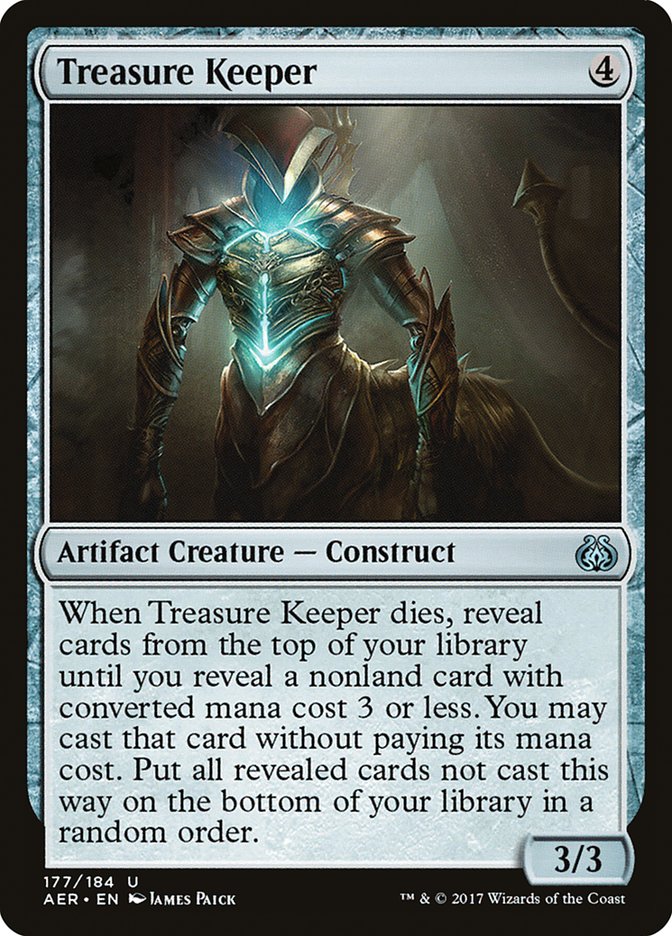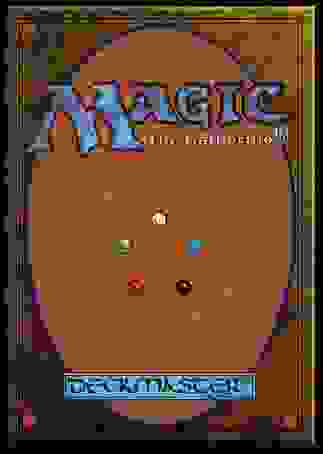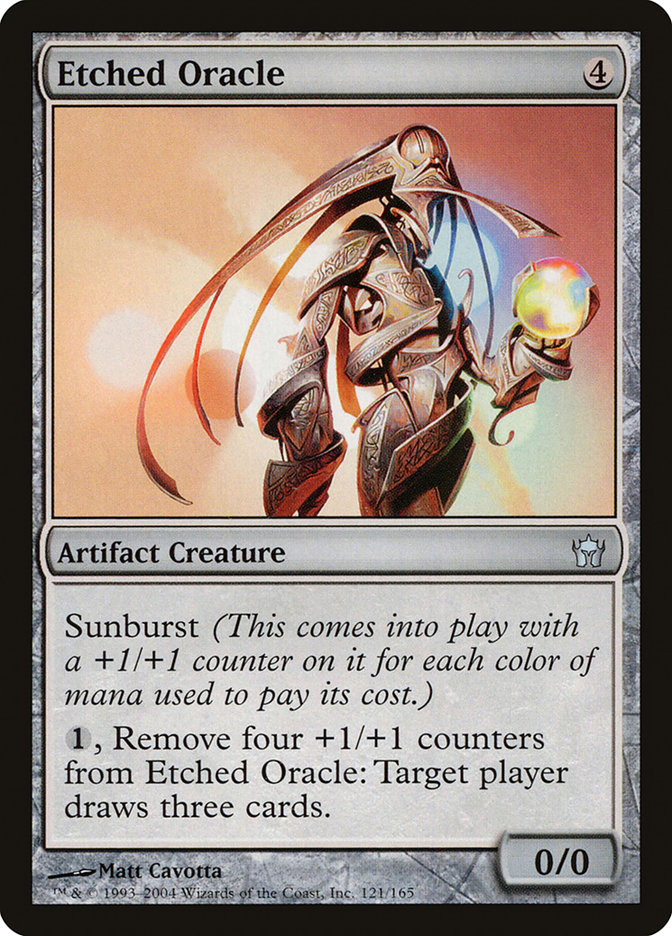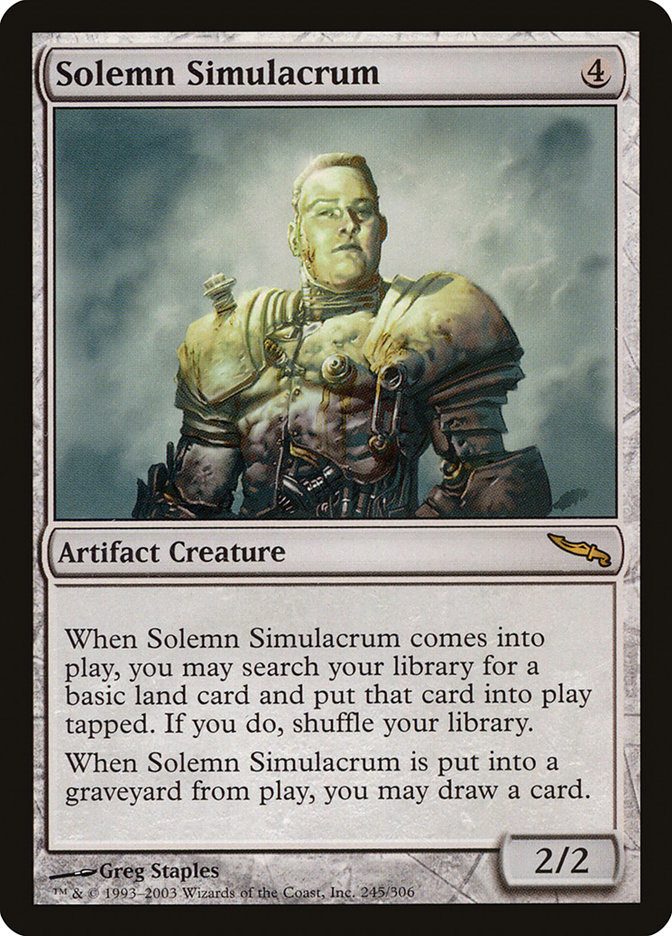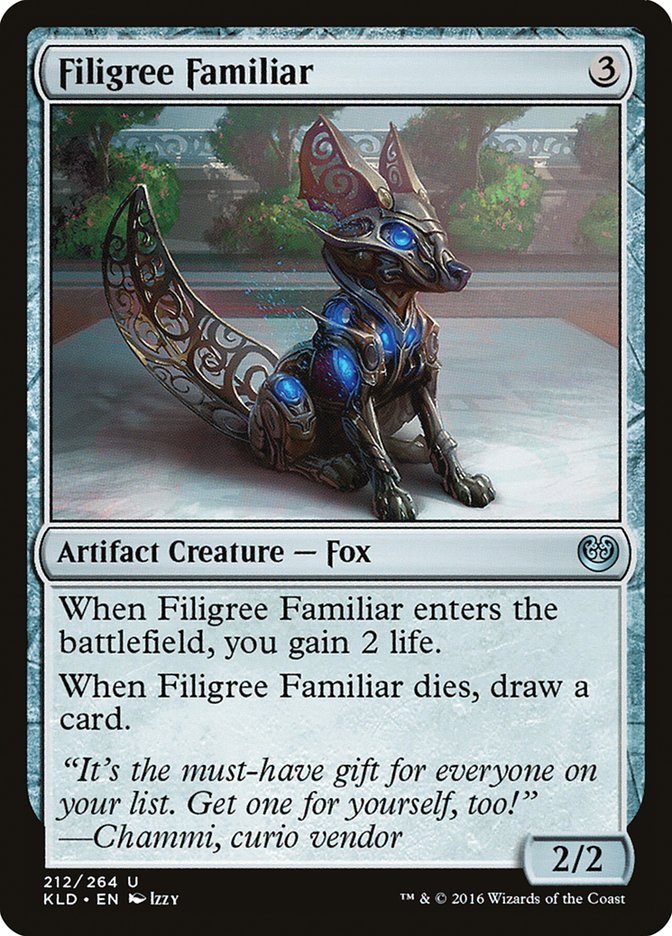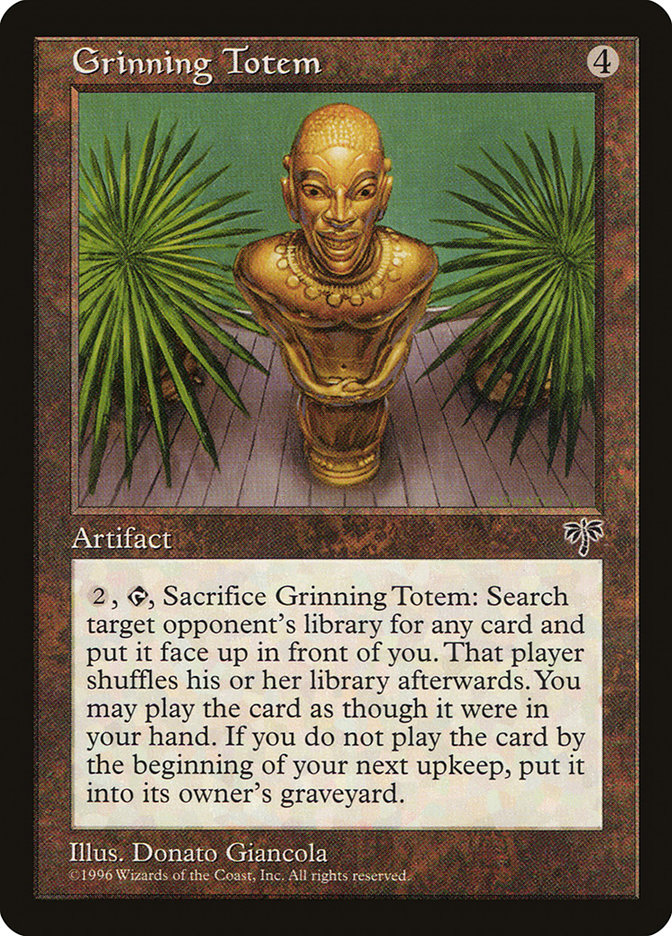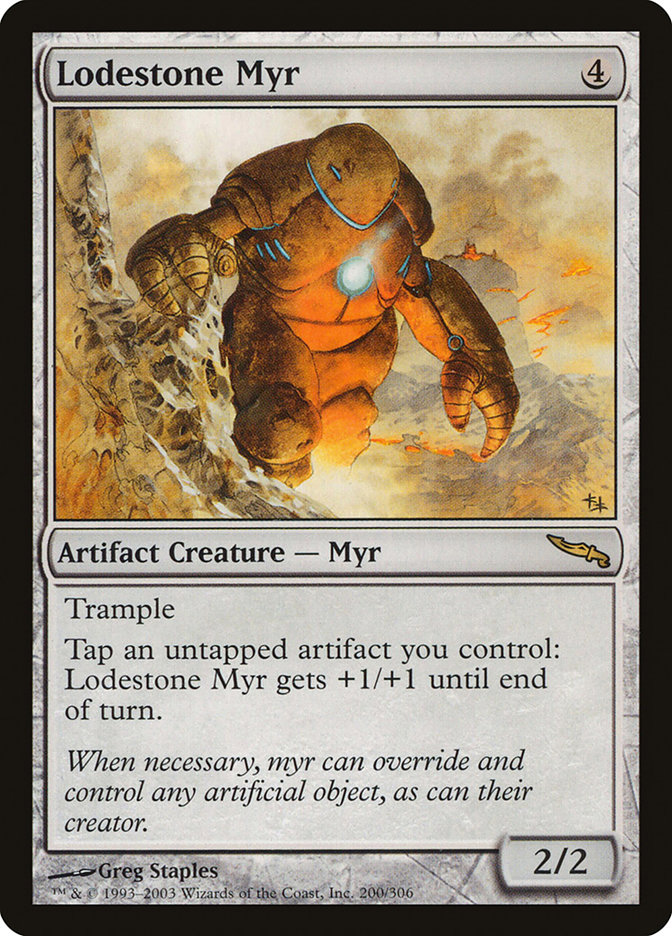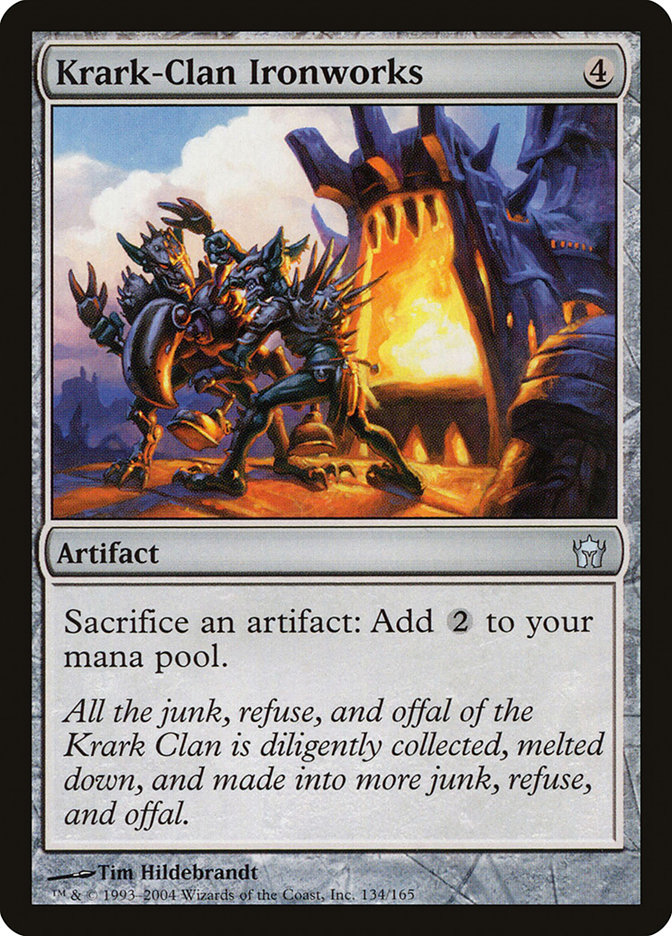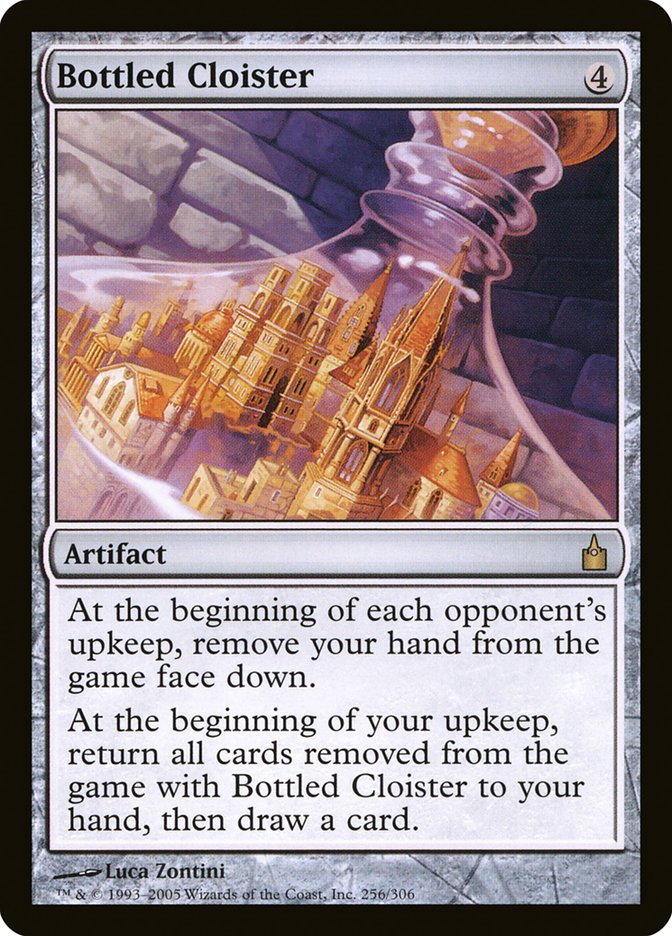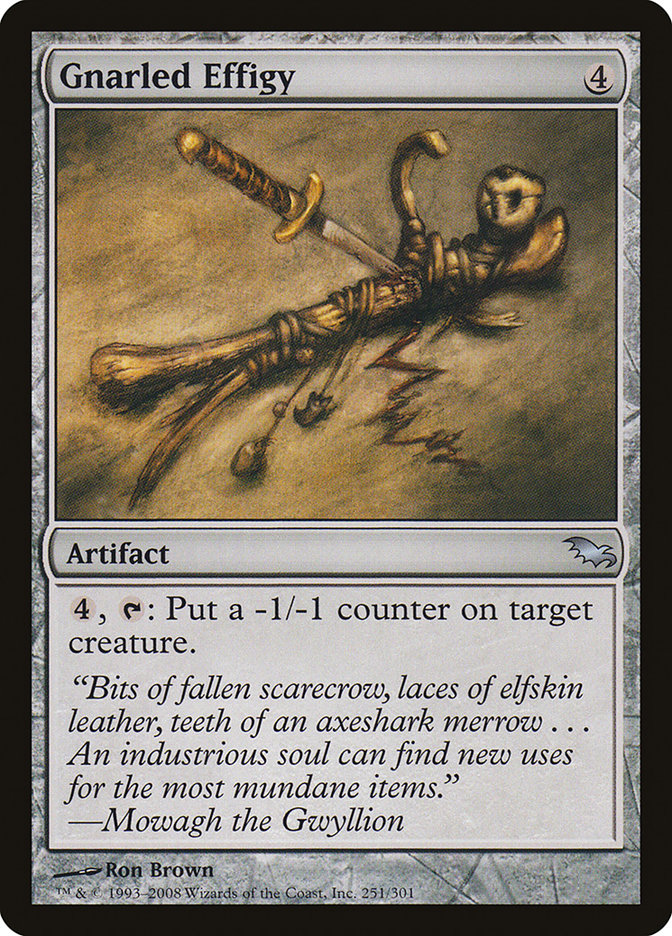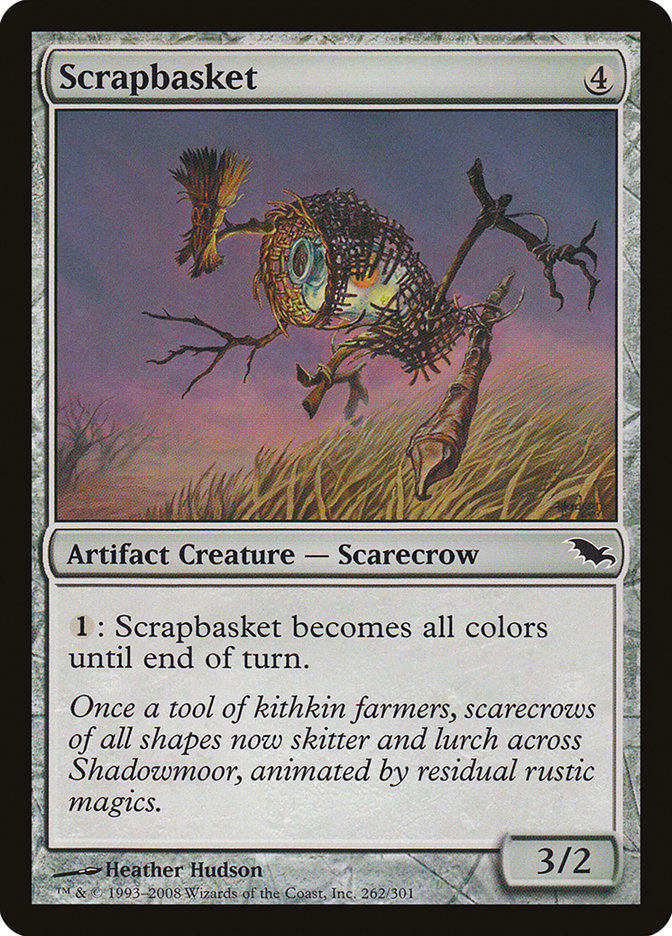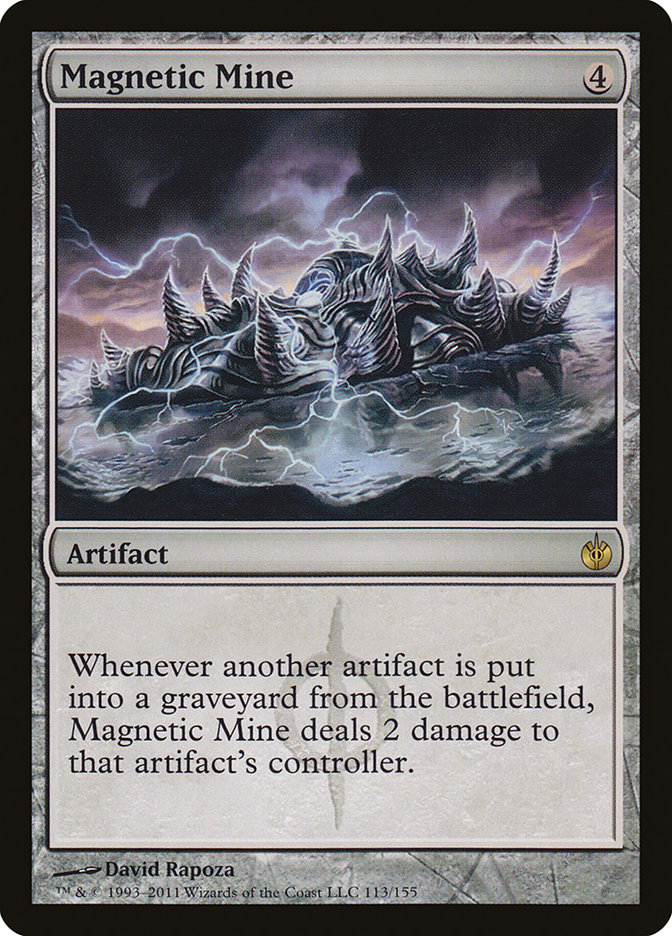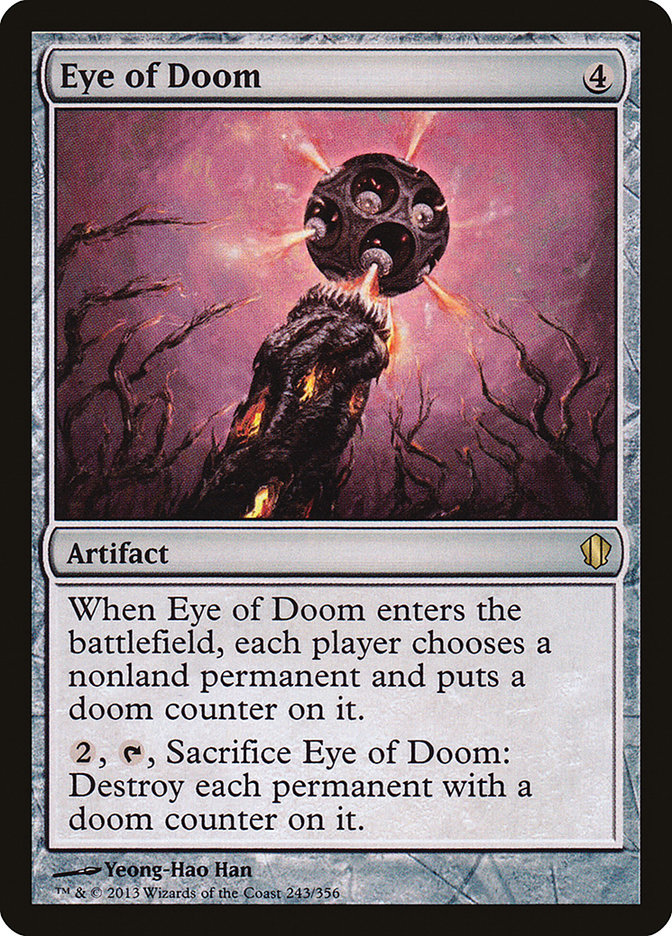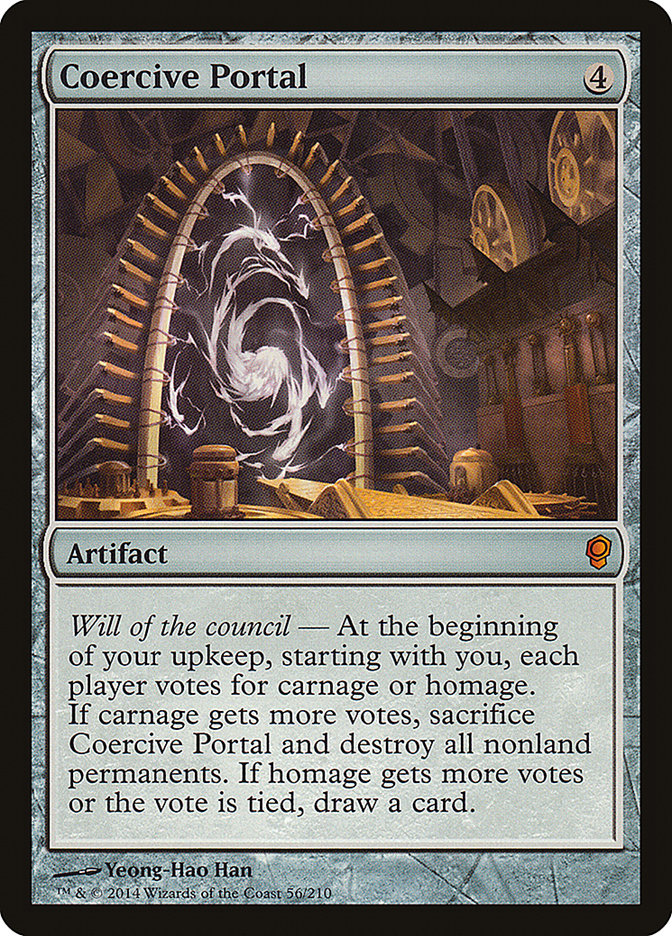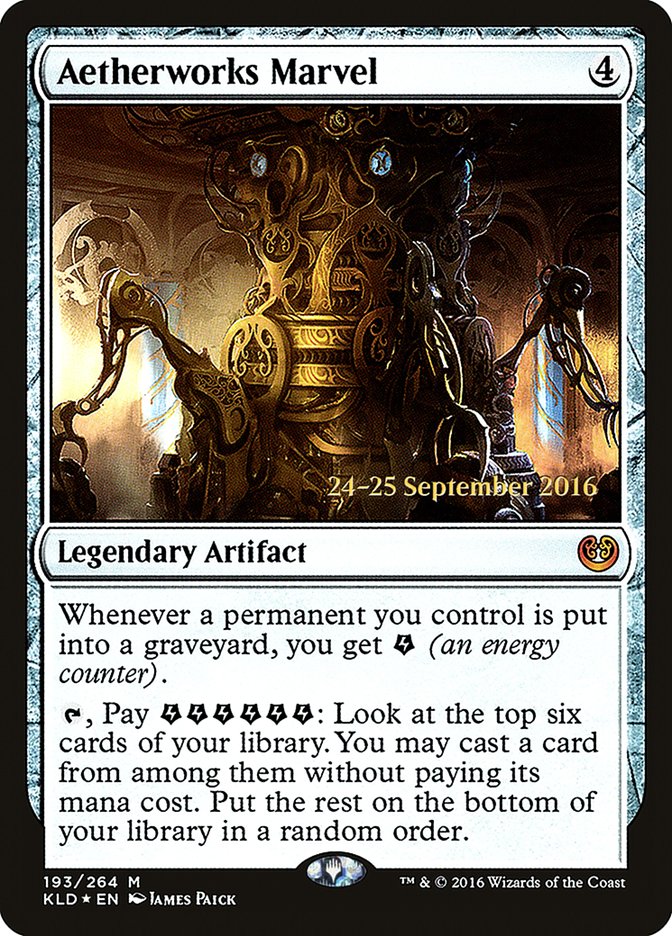Treasure Keeper MTG Card
| Card sets | Released in 6 setsSee all |
| Mana cost | |
| Converted mana cost | 4 |
| Rarity | Uncommon |
| Type | Artifact Creature — Construct |
| Power | 3 |
| Toughness | 3 |
Text of card
When Treasure Keeper dies, reveal cards from the top of your library until you reveal a nonland card with converted mana cost 3 or less. You may cast that card without paying its mana cost. Put all revealed cards not cast this way on the bottom of your library in a random order.
Cards like Treasure Keeper
Treasure Keeper offers unique versatility to Magic: The Gathering decks that are looking to capitalize on cascade-like effects. Similar to the beloved Etched Oracle, both cards share the concept of providing value upon leaving the battlefield. Where Treasure Keeper differentiates itself is in the trigger of a cascade for spells with a lower mana cost without targeting, unlike the Oracle’s need for mana investment and targeted card draw.Comparing with the likes of Solemn Simulacrum, another creature that brings a benefit when it hits the graveyard, Treasure Keeper allows for more unpredictability and potentially higher payoff with the cards cast for free. However, Solemn Simulacrum offers a different kind of value, guaranteeing land acceleration and a draw upon death, which can be more consistent and controlled.Another card worthy of comparison is Filigree Familiar, which also provides value upon death with its life gain and card draw. What Treasure Keeper lacks in life stabilization, it more than compensates for with its potential to trigger a string of game-changing plays. Thus, amongst its counterparts, Treasure Keeper shines as a cascade trigger powerhouse.
Cards similar to Treasure Keeper by color, type and mana cost
Card Pros
Card Advantage: Treasure Keeper guarantees value by cascading into another card when it dies, bolstering your hand and giving you more options for your strategy. This mechanic can pivot a game in your favor by simply having more resources to deploy.
Resource Acceleration: This artifact creature can be a cog in engines that untap, sacrifice, or utilize creatures for benefits, often fueling your board with the right mana or pieces at crucial turns.
Instant Speed: Although Treasure Keeper itself doesn’t operate at instant speed, it synergizes well with effects that can sacrifice it at a moment’s notice. This allows you to leverage its death-trigger on your terms, often during your opponent’s end step or in response to their actions, keeping them guessing and you ahead.
Card Cons
Discard Requirement: Although Treasure Keeper doesn’t directly require discarding cards, upon its death, it indirectly compels players to reveal cards and potentially discard valuable spells or creatures they might prefer to keep handy for strategic plays.
Specific Mana Cost: Treasure Keeper demands a precise mana investment of four, including two generic and two colorless mana. This can be challenging in multicolored decks where mana optimisation is crucial, possibly causing delays or hindering the casting of this artifact creature when needed most.
Comparatively High Mana Cost: With a four-mana value, players might ponder over the card’s efficiency compared to others in the same cost range. Considering the gamble of what you might reveal upon its death, some may argue that there are more predictable and direct ways to obtain card advantage or field presence.
Reasons to Include in Your Collection
Versatility: Treasure Keeper offers broad flexibility, seamlessly integrating into numerous deck archetypes. Its ability to reveal cards until a non-land card with converted mana cost four or less is found ensures that it can find a home in everything from artifact synergistic builds to value-based engines.
Combo Potential: Upon its destruction, Treasure Keeper’s ability can turn into a combo enabler, digging for key pieces that may otherwise be difficult to access. It synergizes with self-sacrifice effects and recursion strategies, making it a dynamic piece in complex board states.
Meta-Relevance: With the shifting dynamics of the meta, the inherent value Treasure Keeper provides as a cascading utility piece keeps it relevant. Its capacity to offer deck consistency while providing an additional body on the board makes it a competent selection in varied competitive landscapes.
How to beat
Treasure Keeper is quite the asset for decks that delve into cascading spells and abilities in Magic: The Gathering. Its death-triggered ability to reveal cards from the top of your library until you reveal a nonland card with converted mana cost 3 or less offers an edge, essentially guaranteeing a spell cast for free. To outmaneuver Treasure Keeper, one effective tactic is to minimize its impact by using removal spells that exile it rather than destroy it, such as Path to Exile or Swords to Plowshares. This prevents its ability from triggering altogether.
Counterspells also serve as a reliable means to ensure Treasure Keeper never hits the battlefield in the first place. Holding up a Negate or Essence Scatter can be the perfect response to this artifact creature. Moreover, if you manage to take control of Treasure Keeper before it dies, for example with a Claim the Firstborn, you can benefit from its ability instead. It’s essential to manage it swiftly, as it can significantly boost your opponent’s board state if left unchecked.
Additionally, maintain pressure on your opponent by deploying threats they must address, which might detract from their strategy involving Treasure Keeper. In essence, your aim is to anticipate and mitigate the free spell it could grant, all while keeping a pace that forces your adversary to react rather than act.
Where to buy
If you're looking to purchase Treasure Keeper MTG card by a specific set like Aether Revolt and Masters 25, there are several reliable options to consider. One of the primary sources is your local game store, where you can often find booster packs, individual cards, and preconstructed decks from current and some past sets. They often offer the added benefit of a community where you can trade with other players.
For a broader inventory, particularly of older sets, online marketplaces like TCGPlayer, Card Kingdom and Card Market offer extensive selections and allow you to search for cards from specific sets. Larger e-commerce platforms like eBay and Amazon also have listings from various sellers, which can be a good place to look for sealed product and rare finds.
Additionally, Magic’s official site often has a store locator and retailer lists for finding Wizards of the Coast licensed products. Remember to check for authenticity and the condition of the cards when purchasing, especially from individual sellers on larger marketplaces.
Below is a list of some store websites where you can buy the Treasure Keeper and other MTG cards:
 BUY NOW
BUY NOW BurnMana is an official partner of TCGPlayer
- eBay
- Card Kingdom
- Card Market
- Star City Games
- CoolStuffInc
- MTG Mint Card
- Hareruya
- Troll and Toad
- ABU Games
- Card Hoarder Magic Online
- MTGO Traders Magic Online
See MTG Products
Printings
The Treasure Keeper Magic the Gathering card was released in 6 different sets between 2017-01-20 and 2022-06-10. Illustrated by 2 different artists.
| # | Released | Name | Code | Symbol | Number | Frame | Layout | Border | Artist |
|---|---|---|---|---|---|---|---|---|---|
| 1 | 2017-01-20 | Aether Revolt | AER | 177 | 2015 | Normal | Black | James Paick | |
| 2 | 2018-03-16 | Masters 25 | A25 | 235 | 2015 | Normal | Black | James Paick | |
| 3 | 2020-08-07 | Double Masters | 2XM | 302 | 2015 | Normal | Black | James Paick | |
| 4 | 2021-08-26 | Jumpstart: Historic Horizons | J21 | 758 | 2015 | Normal | Black | James Paick | |
| 5 | 2022-06-10 | Commander Legends: Battle for Baldur's Gate | CLB | 341 | 2015 | Normal | Black | José Parodi | |
| 6 | Battle for Baldur's Gate Art Series | ACLB | 26 | 2015 | Art series | Borderless | José Parodi |
Legalities
Magic the Gathering formats where Treasure Keeper has restrictions
| Format | Legality |
|---|---|
| Historicbrawl | Legal |
| Historic | Legal |
| Legacy | Legal |
| Paupercommander | Restricted |
| Oathbreaker | Legal |
| Gladiator | Legal |
| Pioneer | Legal |
| Commander | Legal |
| Modern | Legal |
| Vintage | Legal |
| Duel | Legal |
| Explorer | Legal |
| Penny | Legal |
| Timeless | Legal |
Rules and information
The reference guide for Magic: The Gathering Treasure Keeper card rulings provides official rulings, any errata issued, as well as a record of all the functional modifications that have occurred.
| Date | Text |
|---|---|
| 2020-08-07 | If a card in a player's library has in its mana cost, X is considered to be 0. |
| 2020-08-07 | If a spell has in its mana cost, you must choose 0 as the value of X when casting it without paying its mana cost. |
| 2020-08-07 | If you cast a spell “without paying its mana cost,” you can't choose to cast it for any alternative costs. You can, however, pay additional costs. If the card has any mandatory additional costs, those must be paid to cast the spell. |
| 2020-08-07 | If you don't cast the nonland card with mana value 3 or less, it'll be put on the bottom of your library in a random order with the other cards. |
| 2020-08-07 | If your library has no nonland cards in it with mana value 3 or less, you'll reveal all the cards in your library, then put them back in a random order. |
